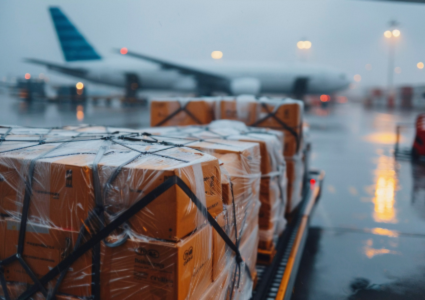
Introduction – Why Customs in the Gulf Needs Special Preparation
Exporting to Gulf Cooperation Council (GCC) and broader MENA (Middle East and North Africa) countries involves navigating a customs ecosystem that is strict, document-heavy, and increasingly digitized. Markets like Saudi Arabia, UAE, Qatar, and Egypt have modernized their clearance systems, but non-compliance still leads to major shipment delays or outright rejections.
This 2025 guide helps exporters prepare for customs clearance with the right documents, product certifications, labeling, and digital platform use.
Key GCC & MENA Customs Authorities
Each country has its own system with local digital platforms. You must register and use the appropriate one:
| Country | Customs Platform | Notes |
| Saudi Arabia | FASAH + SFDA + SABER | SFDA for food/drug; SABER for electronics |
| 阿联酋 | Dubai Trade, Abu Dhabi Customs | Trade registration mandatory |
| Qatar | Al-Nadeeb | Linked to Chamber of Commerce |
| Oman | Bayan | Streamlined e-clearance |
| 埃及 | NAFEZA | Mandatory for all imports since 2022 |
| Jordan | ASYCUDA | Used for cargo processing and valuation |
Documents Required for GCC & MENA Customs Clearance
Regardless of destination, always prepare:
- 商业发票 (in English and Arabic)
- 包装清单
- 原产地证书 (stamped by local chamber)
- Import License or Registration (for receiver)
- Product-Specific Certificates:
- Halal (if applicable)
- Health or Phytosanitary Certificate
- Conformity Certificate (SFDA, ESMA, SASO)
- Bill of Lading or Airway Bill
- Customs Declaration / SAD Form
- Insurance Certificate (recommended)
Saudi Arabia: One of the Most Regulated Markets
Saudi Arabia enforces a multi-layer clearance process through platforms like:
- SFDA for food, cosmetics, pharmaceuticals
- SABER / SALEEM for electronic and industrial goods
- FASAH for document submission and real-time customs clearance
Important Tips:
- Register products on SFDA and SABER before shipment
- Ensure all HS codes match documents exactly
- Shipments missing conformity certificates are automatically denied entry
UAE: Free Zones & Dual Systems
The UAE has dual customs environments: Free Zones (like JAFZA) and Mainland.
- Mainland UAE requires import code and Chamber of Commerce registration
- Free Zone imports may skip VAT but must meet all product safety requirements
- All food and cosmetics products must be registered with ESMA or Dubai Municipality
Customs clearance is processed through Dubai Trade Portal with mandatory e-declarations.
Country-Specific Rules at a Glance
| Country | Unique Requirements |
| Qatar | Arabic labels mandatory; Halal certificate enforced |
| Oman | Clear barcode and expiry labeling required |
| 埃及 | NAFEZA e-platform mandatory; ACID number pre-shipment |
| Jordan | ASYCUDA inspection and 5-year product record checks |
Labeling & HS Code Matching
Failure to match labeling and HS code details across all documents is one of the most common causes of clearance delays.
- All labels must include:
- Product name
- Country of origin
- Manufacturing/expiry date
- Ingredient list (for food/cosmetics)
- Arabic translation (mandatory)
- Ensure HS codes are consistent across:
- Invoice
- 原产地证书
- SFDA/SABER registration
Syrmex: Full-Service Customs Clearance Support
We offer complete compliance services for MENA customs including:
- Product classification & HS code analysis
- Registration with SFDA, SABER, ESMA, NAFEZA
- Translation and legal review of all documentation
- Importer of record (IOR) and in-country representation
- Shipment tracking and customs broker coordination
With logistics partners on the ground in Jeddah, Dubai, Doha, and Cairo, Syrmex ensures your goods clear efficiently, every time.
Learn more about our Trade Compliance Services →
Common Mistakes and How to Avoid Them
- Missing Halal or conformity certification
- Unregistered product SKUs
- Non-Arabic packaging
- Inconsistent invoice and label data
- Incorrect HS code declaration
- Late submission to SFDA or NAFEZA
Proactive planning and verification with a professional customs team can prevent all of these.
Conclusion: GCC Clearance is Complex, But Predictable
With documentation, product compliance, and customs platform knowledge, exporters can clear goods into any GCC or MENA market smoothly. The key is preparation and local expertise—both of which Syrmex provides.





